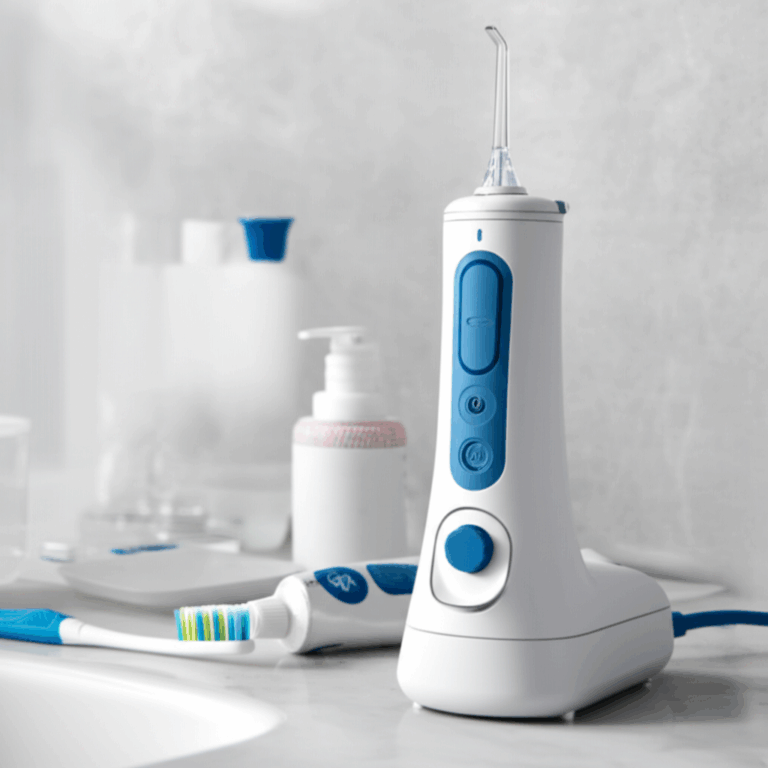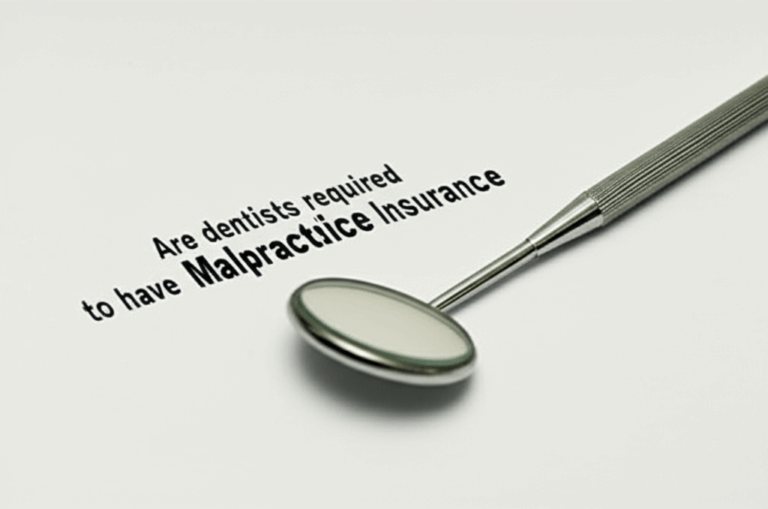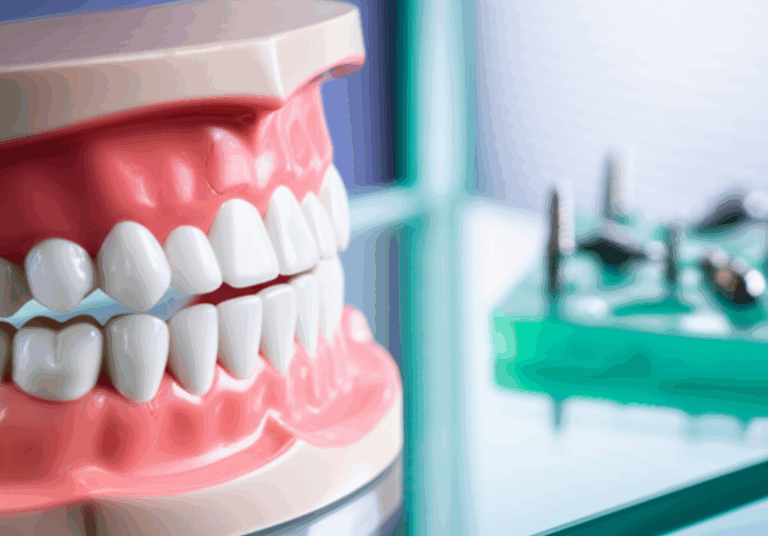
How to Make a Dentist Appointment When You Have Medical Conditions or Medical Insurance
Table of Contents
- Introduction: Bridging Your Medical and Dental Health
- Understanding Your “Medical” Connection to Dental Care
- What Your Medical Conditions Mean for Dental Treatment
- Step-by-Step Guide: Making Your Appointment
- What to Expect During Your Dental Visit
- Managing Costs and Understanding Coverage
- Special Scenarios and Populations
- Barriers to Care and Practical Solutions
- Oral Hygiene Tips When You Have Medical Conditions
- Final Checklist You Can Use Today
- Conclusion: Prioritize Your Whole Health
Introduction: Bridging Your Medical and Dental Health
I used to think my mouth was something separate from the rest of my body. Teeth here, body there. Then life happened—I got high blood pressure, a handful of new medicines, and a toothache that showed up at the worst time. That’s when I learned your mouth and your body belong on the same team.
Making a dental appointment felt much harder with medical issues in play. Should I call my main doctor first? Would my health insurance pay for any of this? What did I need to tell the dental office? I’ve learned that getting ready ahead of time saves a lot of trouble. In this guide, I’ll show you how I set up dentist visits with health problems or when I hope my medical insurance might pay something. I’ll tell you about picking the right dentist, checking insurance, getting the okay from my doctor, and getting ready for a good visit.
I’ve learned from dentists who help people with tough medical backgrounds all the time. They taught me to be honest about my health story, to ask about pre-approval, and to request an insurance check before going in. Most of all, they showed me that working together with your medical team helps you stay safe.
Understanding Your “Medical” Connection to Dental Care
Let’s make one thing clear fast. Medical insurance and dental insurance aren’t the same. They have different rules and cover different things. But sometimes, medical insurance can pay for certain dental work.
When does medical insurance pay for dental care?
- When you have an injury to your mouth or face, like a broken jaw from a fall or accident.
- If you need mouth surgery that’s necessary for your health, like getting rid of cysts, taking samples, or treating infections that affect your whole body.
- For special tests your doctor ordered for things like possible oral cancer or scans of your jaw or sinuses.
- If you need anesthesia in a hospital because of certain health needs or disabilities.
- Sometimes, for dental work needed before a major medical treatment, like extractions before an organ transplant or radiation to the head or neck (but you usually need approval first).
More on insurance:
- Under the ACA, dental insurance for kids is seen as a must-have with some health plans, but not for adults. So if your child needs dental care, you might already have coverage.
- Original Medicare doesn’t cover most dental care. Some Medicare Advantage plans do, but it depends. Medicaid covers dental for adults only in some states—sometimes only for emergencies. Always check your plan.
- For regular things like checkups, fillings, crowns, root canals, dentures, and implants, that’s usually dental insurance. But if your case is different, like biopsy or mouth injury, sometimes it can go to medical insurance.
I ask the dental office to check benefits for both dental and medical insurance and to tell me in writing what’s covered and if I need approval before I go.
What Your Medical Conditions Mean for Dental Treatment
Your dentist needs your true health information. Not just bits and pieces. All your diagnoses, surgeries, medicines, allergies, and any devices you use. Don’t be shy—this keeps you safe.
Here’s what I always make sure to talk about:
- Heart disease or high blood pressure: They’ll watch your blood pressure, pick certain numbing medicine, or talk to your heart doctor if needed. Some people need antibiotics before certain visits.
- Blood thinners (like warfarin, aspirin): The dentist is careful about bleeding and will work with your doctor. Never stop your medicine before asking your doctor.
- Diabetes: You might heal slower, or your gums might bleed more. The dentist might suggest morning visits and talk to your doctor about your sugar levels.
- Pregnancy: Regular care is usually fine. X-rays might wait. Tell them about all pregnancy changes.
- Cancer treatment: Before you start chemo or radiation, you may need dental work to lower infection risk. Your dental team will plan with your cancer doctor.
- Autoimmune problems: These often mean dry mouth or more decay. The dentist might give special tips for prevention.
- Kidney disease or after a transplant: Your dentist could plan around dialysis days or may need a doctor’s note.
- HIV/AIDS: With good medicine, care is about prevention and checking for mouth sores.
- Stroke or brain issues: The team might change how they seat you or use bite blocks.
- Mental health stuff: Anxiety or dental fears are common. Ask for sedation or shorter visits.
- Epilepsy: Tell them about your triggers or medicine hours.
- ADHD/autism or other differences: You can request quieter rooms or more time.
- Down syndrome or genetic concerns: The team checks for joint and heart issues, and might talk to your doctor.
- Bone medicines: These can affect healing. Your dentist might wait on extractions or talk to your doctor.
- Pacemakers or joint replacements: The dentist avoids certain tools or might ask your surgeon if antibiotics are needed.
- Medicines: Some dry out your mouth or impact the immune system. List them all with doses.
If your dentist asks for “medical clearance,” it means they want your doctor’s okay before doing tough procedures or putting you to sleep. This is a good thing.
Step-by-Step Guide: Making Your Appointment
Here’s my simple routine for booking dental visits with health problems or when insurance is confusing.
Step 1: Gather Your Info
I write it down or put it in my phone:
- Your health history (diagnoses, surgeries, hospital stays)
- All your medicines (with doses—even vitamins or over-the-counter stuff)
- Allergies or special reactions (like to medicine, latex, metal)
- Both insurance cards and their numbers
- Doctor’s and specialist’s names and phone numbers
- Any recent blood tests that matter (INR for blood thinners, A1C for diabetes)
- A list of past dental problems
Step 2: Find the Right Dentist
Look for a dentist who knows how to treat people with medical needs:
- Check who’s in your plan for dental insurance. If you hope medical insurance covers part, ask them what dentists they accept for medical things.
- Use tools on your insurance website to search. Some clinics take Medicaid or offer payment based on how much money you have.
- Ask your doctor for a referral.
- Try dental school clinics—they cost less, but visits take longer.
- For certain needs, see a pediatric dentist (kids), geriatric dentist (older adults), oral surgeon (for tough cases), periodontal specialist (if you have gum problems), or others who match what you need.
- Make sure the office has wheelchair access, quieter rooms, or anything else you need.
- If money is a big problem, look for a local clinic, dental school, or state program for cheaper care.
If you don’t already have a dentist, you can look up a dentist who can work with your medical team.
Step 3: Make the Call
I always call the office first, instead of just booking online. Here’s what I say (make these words your own):
- “Hi, I want a dentist appointment. I have [my medical problems] and take [medicines]. Do you often see patients like me?”
- “Do you take my dental insurance? If something is medically needed, do you bill my medical insurance?”
- “Will I need approval before my visit? Can you look that up for me?”
- “Will my doctor need to send a clearance? Is there a form for that?”
- “What should I bring? Medicine list, lab results, device cards?”
- “How do you help if someone is nervous or sensitive? Do you offer laughing gas or sedation?”
Pay attention to how the office answers—if they listen and ask questions, good! If they don’t seem to care, try calling somewhere else.
Step 4: Get Ready for the Visit
Once you have an appointment:
- Fill out your health forms honestly (more info is better)
- Bring all your documents: ID, insurance cards, medicine list, lab results, device cards
- Bring a water bottle, lip balm, and headphones if you want (check if allowed)
- Tell the team right away about fears, gag reflexes, trouble getting numb
- Ask about X-rays if you have health reasons for concern
What to Expect During Your Dental Visit
My first time with a new dentist felt like a mouth check-up that paid close attention to my whole body.
- The dentist will ask about your health story in detail—you want this!
- They’ll check your mouth, do an oral cancer check, and likely take X-rays, unless you shouldn’t have them right then.
- Your dentist will talk about a treatment plan that matches your medical story. (Example: If you have diabetes and gum trouble, you might need more visits or different cleanings).
- If needed, they’ll reach out to your main doctor.
- Nervous? They might offer laughing gas or stronger sedation. If you need to be put under, it could happen in a hospital.
- On blood thinners? The dentist is extra careful about bleeding.
- On bone medicine or head/neck radiation? They’ll maybe avoid removing teeth, and talk about root canals instead.
- Crowns, bridges, dentures, implants: Your dental office will work with a dental lab for the best fit and quality. For example, they might use a good crown and bridge lab, an implant dental laboratory, or a removable denture lab for custom solutions. These help with comfort and how long your new teeth last.
Managing Costs and Understanding Coverage
Money stress can stop people from getting care. Here’s how I deal with it:
- Ask the dental office to check my benefits for both insurances, and get a cost estimate in writing before the visit.
- Learn what my co-pays, deductibles, and yearly limits are for both health and dental plans.
- Use pre-approval for bigger jobs (like crowns, implants, or hospital care).
- Ask for a written estimate, and check the codes with my insurance company if I want.
- If money is tight:
- Medicaid dental (if your state offers it)
- State-funded or public health dental programs
- Community clinics or dental schools (lower fees)
- Discount dental plans (not insurance, but can reduce cost)
- Payment plans through the clinic
- VA or veterans’ benefits, if I qualify
- Local charities can sometimes help
- If a claim gets denied, ask for the reason in writing. You can appeal with extra documents explaining your health need. The dental office can help you write a letter.
Special Scenarios and Populations
Some tips I picked up:
- If you need emergency dental care, call and say it’s urgent. If your face is swelling badly or you can’t stop bleeding, go to the ER.
- Sedation (for big fears or medical needs): Always tell your full health story, including any bad reactions in the past.
- Gum disease and your body: Gum trouble can make things like diabetes worse, and vice versa.
- At risk for mouth cancer (smoking, alcohol, HPV, past cancer)? Regular mouth checks can save your life.
- On immune medicine or after transplant: You might need antibiotics.
- Braces or aligners: You can still get them with health issues. Your orthodontist will work around your other care.
- Prosthetics and materials: If you grind teeth or have dry mouth, ask about stronger materials. You might need a zirconia lab for tougher crowns.
- Children may have dental coverage with their health insurance. Older people often take meds that dry out their mouth—ask about fluoride and saliva helpers.
- Special needs: Ask for quiet visits, dim lights, or pre-visits to get used to the office.
Barriers to Care and Practical Solutions
I struggled with three big problems—here’s how to handle them:
- Confusing costs and insurance: Ask for written estimates and use pre-approval for expensive stuff. Look for cheaper clinics if needed.
- Finding the right dentist: Start the first call by sharing your health situation. If they listen and work with your doctor, that’s a great sign.
- Fear or anxiety: Be honest about it. Try shorter visits, numbing gels, or sedation. Some offices let you “practice” just sitting in the chair. Breathing tricks or holding something small helps me.
- Trouble getting there: Ask about ramps, caregiver help, or available ride services.
- When you’re not feeling great: Pick a morning time, and ask for short, spread-out visits.
- Doctor-dentist communication: Sign a release form so they can talk.
Oral Hygiene Tips When You Have Medical Conditions
Your daily routine matters a lot—here’s what I do:
- Dry mouth: Sip water, chew sugar-free gum, use mouth gels, skip burning mouthwash.
- Gum risk: Brush twice daily with fluoride paste, floss every day, go for cleanings as suggested.
- On blood thinners: Use a soft brush and be gentle. Bleeding often means sore gums, not just the medicine.
- Cancer therapy: Use special fluoride trays and rinse with mild solutions if you get sores.
- Braces/aligners: Clean well around them—ask the hygienist for tips.
- Dentures: Clean outside the mouth every day, soak as told, rinse after meals. When planning new dentures, ask the dentist about which lab they use—it helps with comfort and life of the denture.
Final Checklist You Can Use Today
A quick list before your next dental visit:
- Wrote my health story, meds, allergies, and doctor details
- Gathered both insurance cards and numbers
- Found a dentist who works with my kind of health story and checked my insurance
- Asked about insurance billing for medical needs and if pre-approval is needed
- Checked if I need a doctor’s note (got the form if needed)
- Ready to bring all papers: insurance, meds, labs, device cards
- Told the office about any fears or special needs
- Looked at costs, co-pays, payment plans
- Set reminders for visits and follow-ups
Conclusion: Prioritize Your Whole Health
I don’t keep dental care separate from my health anymore. I share my health info, ask questions, check insurance, and ask my dentist and doctor to work together. It takes a little more work, but it means safer treatment and no surprises.
When you’re ready to call, start with your health story and ask how the office can help. Step through the process one piece at a time—your mouth and your whole body will be glad you did.
Practical Tips I’ve Learned:
- Taking care of your gums helps with big problems like diabetes and heart disease.
- If you need crowns or bridges, ask which lab your dentist uses—the right materials and work help everything fit and last.
- Implants take planning (sometimes with CT scans or bone changes). Your dentist might bring in other experts who know your health background.
- If you can’t find a local option, you might use tele-dentistry for first visits or follow-ups if you don’t need hands-on care.
- Medicare and Medicaid often don’t offer much for adult dental. Plan for this ahead, and focus on prevention and budgeting for major work.
Key Topics:
- What dental and medical insurance cover (and when medical might help)
- Medicaid and Medicare for dental
- Finding a dentist for your needs and insurance
- Cheaper options: public clinics, dental schools, aid programs
- Medical clearance for dental work
- Treatment planning with your health in mind
- Sedation and anesthesia if you need it
- Privacy forms, medical records, and sharing info
- Safe X-rays and cancer checks
- Pre-approvals, payment plans, appealing denied claims
- Tele-dentistry for some visits
- Care tips at home, matched to your health and medicines
You don’t need to learn all this in a day. Just start with one step at your next visit. And if you need major work (like implants or dentures), ask about the labs your dentist trusts—good teamwork makes a big difference for your daily life.








